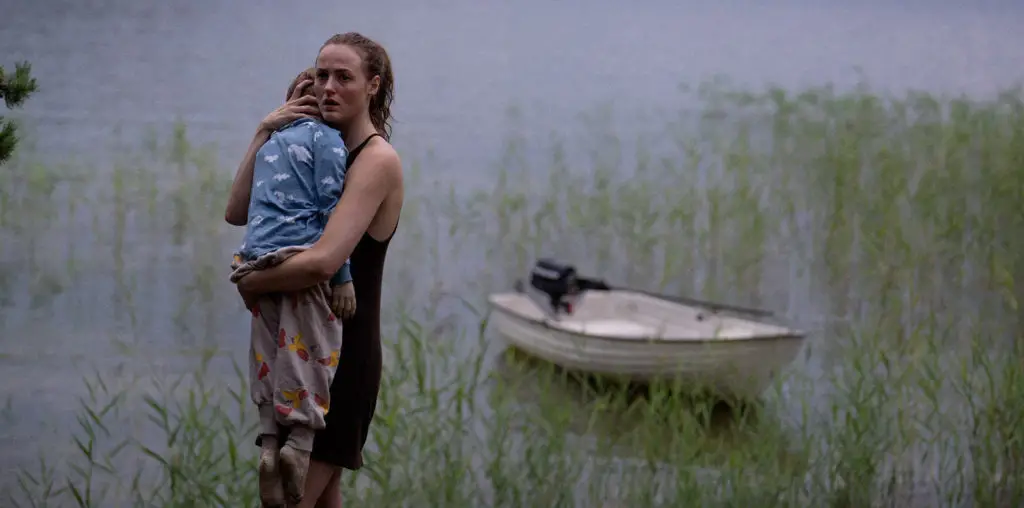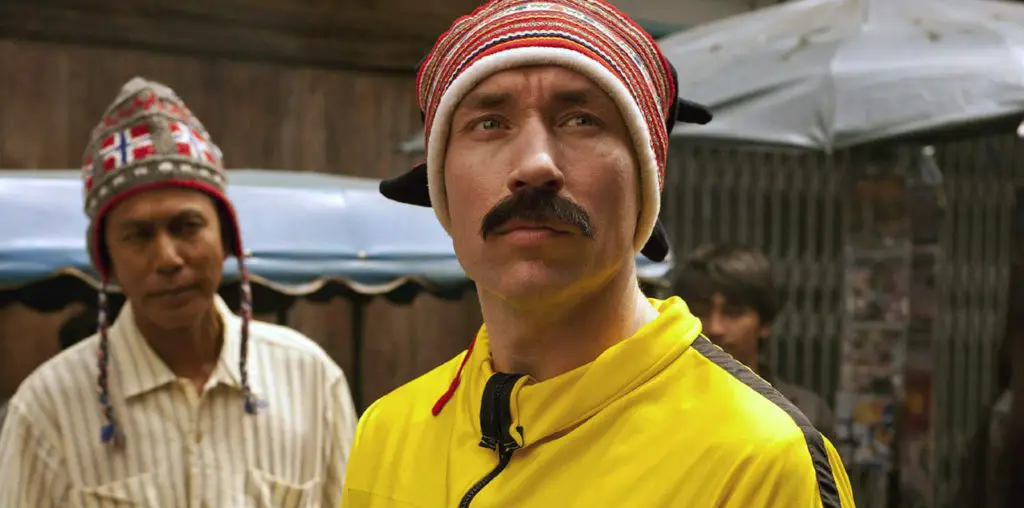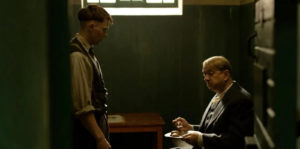
PALM SPRINGS INTERNATIONAL FILM FESTIVAL 2025 REVIEW! In yet another film spotlighting a story familiar to the world—though less so to the United States—director Erik Poppe brings to life the final chapter of Norway’s pro-Nazi leader, Vidkun Quisling, in Quisling: The Final Days.
The film opens shortly after Hitler’s death, marking the end of World War II. Norway’s puppet leader, Vidkun Quisling (Gard B. Eidsvold), is escorted from his mansion to police headquarters to face trial as a war criminal despite the protests of his wife, Maria (Lisa Carlehed). Quisling, formally charged, awaits his trial with execution looming.
Meanwhile, the Norwegian church insists that Quisling receive spiritual guidance in hopes of securing a confession to his atrocities. After two ministers decline the assignment, the task falls to hospital chaplain Peder Olsen (Anders Danielsen Lie).
In private and highly guarded prison meetings, Olsen tries to engage with Quisling, who initially rejects his efforts. Pressured to make a breakthrough, Olsen extends friendship and compassion akin to what Jesus Christ might offer—or does he? Over time, Olsen uncovers a glimmer of humanity in Quisling—or so it seems.
My favorite films are those that compel deep thought from beginning to end. Before this film, I had never heard of Vidkun Quisling, and for those unfamiliar, Quisling’s crimes included handing over nearly 1,000 Norwegian Jews to the Nazis in exchange for peace. He also orchestrated the execution of Russian Bolshevik sympathizers to suppress their influence.
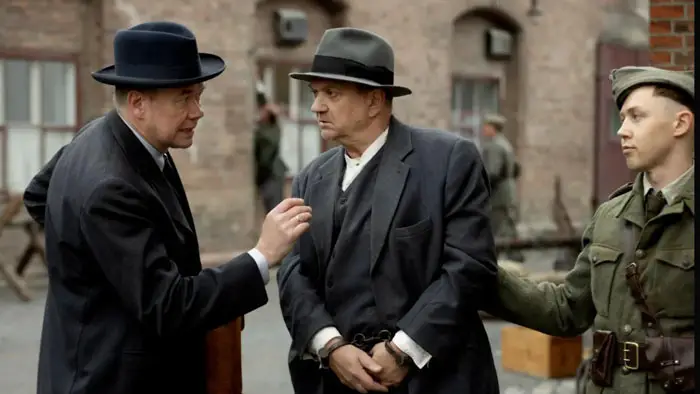
“…Norway’s puppet leader, Vidkun Quisling… awaits his trial with execution looming.”
Quisling: The Final Days focuses on the evolving relationship between Quisling and Olsen. As Olsen demonstrates Christian compassion, Quisling opens up about his motivations. He reveals a deep love for Norwegians, who embraced him and gave him a place of prominence. However, as the Third Reich rose to power in Europe, Quisling believed he could save Norway and Scandinavia—even at the cost of a thousand lives.
The film’s most profound moment arises when Peder Olsen attempts to guide Quisling toward finding peace with God through confession and seeking forgiveness. As Quisling grapples with this, Olsen is forced to confront the limits of divine grace. Can God forgive a Nazi sympathizer and murderer? This moral struggle forms the heart of the story.
Gard B. Eidsvold and Anders Danielsen Lie deliver compelling performances as Quisling and Olsen. The narrative, drawn from the personal diaries of Peder and his wife Heidi, unfolds in a time when society often demonizes those with opposing views. The film neither excuses nor minimizes Quisling’s actions—he unquestionably faced justice—but Erik Poppe humanizes him, a daring choice in a polarized era. By doing so, Poppe encourages viewers to understand the man behind the atrocities better.
Whether you agree or disagree with its perspective, Quisling: The Final Days is a must-see film. While Peder Olsen’s actions may provoke discomfort—given Quisling’s undeniable crimes—the story invites us to reflect on whether even the most despicable among us are capable of redemption. As compassionate individuals, can we offer such forgiveness? And, more importantly, can God?
Quisling: The Final Days screened at the 2025 Palm Springs International Film Festival.
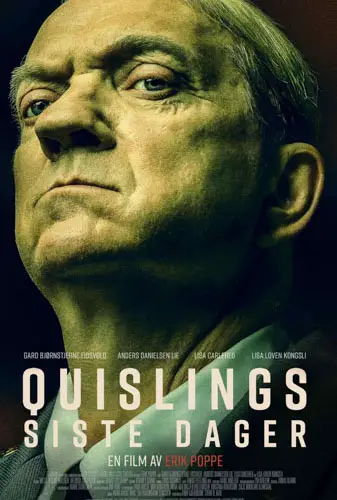
"…Can God forgive a Nazi sympathizer and murderer?"

